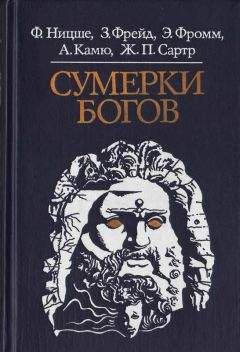Анна Новикова - История и теория медиа
Andrejevic M. iSpy: Surveillance and Power in the Interactive Era. Lawrence: University Press of Kansas, 2007.
Ang I. Watching Dallas: Soap Opera and the Melodramatic Imagination. L.: Routledge, 1985.
Appadurai A. Modernity at Large: Cultural Dimensions of Globalization (Public Worlds. Vol. 1). Minneapolis: University of Minnesota Press, 1996.
Aronson S. Bell’s Electrical Toy: What’s the Use? The Sociology of Early Telephone Usage // Sola Pool I. de (ed.). The Social Impact of the Telephone. Cambridge: MIT Press, 1977. P. 15–39.
Avedon E., Sutton-Smith B. (eds). The Study of Games. N. Y.: John Wiley & Sons, Inc. 1971.
Bandura A. Social Learning Theory. N. Y.: General Learning Press, 1971.
Bandura A. Social cognitive theory of mass communication // Bryant J., Zillmann D. (eds). Media Effects: Advances in Theory and Research. Hillsdale, NJ: Erlbaum, 1994. P. 61–90.
Baran P. The Political Economy of Growth. N. Y.: Monthly Review Press, 1957.
Barbier F. Histoire du livre. Paris: Armand Collin, 2006.
Barbier F., Bertho Lavenir C. Histoire des médias. Paris: Armand Collin, 2000.
Bargh J., Pietromonaco P. Automatic Information Processing and Social Perception: The Influence of Trait Information Presented Outside of Conscious Awareness on Impression Formation // Journal of Personality and Social Psychology. 1982. No. 43. P. 437–449.
Barthes R. Eléments de sémiologie // Communications. 1964a. Vol. 4. No. 4. P. 91–135.
Barthes R. Présentation // Communications. 1964b. Vol. 4. No. 1. P. 1–3.
Bateson G. Steps to an Ecology of Mind: Collected Essays in Anthropology. St. Albans: Paladin, 1973.
Bazin A. The Stalin Myth in Soviet Cinema // Nichols B. (ed.). Movies and Methods: An Anthology. Vol. II. Berkeley: University of California Press, 1985. P. 29–40.
Bell D. The End of Ideology: On the Exhaustion of Political Ideas in the Fifties. N. Y.: Free Press, 1965.
Beaumarchais P. A. Caron de. Théâtre. Lettres relatives à son théâtre. Paris: Gallimard, 1957.
Bennett L., Segerberg A. The Logic of Connective Action. Digital Media and the Personalization of Contentious Politics. Cambridge: Cambridge University Press, 2013.
Berelson B. Content Analysis in Communication Research. N. Y.: The Free Press, 1952.
Berkowitz L., Alioto J. The Meaning of an Observed Event as a Determinant of its Aggressive Consequences // Journal of Personality and Social Psychology. 1973. No. 28. P. 206–217.
Bertho C. Naissance d’un réseau: le téléphone parisien de 1879 à 1927 // Revue française des télécommunications. 1986. No. 58. Mars. P. 80–89.
Birdwhistell R. Kinesics and Context: Essay on Body Motion Communication. Philadephia: University of Pennsylvania Press, 1970.
Birdwhistell R. The Language of the Body: The Natural Environment of Words // Silverstein A. (ed.). Human Communication: Theoretical Explorations. N. Y.: Wiley, 1974. P. 203–220.
Blumler J., Katz E. The Uses of Mass Communications: Current Perspectives on Gratifications Research. Beverly Hills: SAGE Publications, 1974.
Bock Ph. (ed.). Culture Shock: A Reader in Modern Cultural Anthropology. N. Y.: Alfred A. Knopf, 1970.
Bouquillion Ph. Les industries de la culture et de la communication. Les stratégies du capitalisme. Grenoble: Presses Universitaires de Grenoble, 2008.
Bourdieu P. La distinction. Critique sociqle du jugement. Paris: Les éditions de Minuit, 1979.
Bourseul Ch. Transmission électrique de la parole // L’invention. 1854. 26 août.
Braudel F. Civilisation matérielle, économie et capitalisme XVe—XVIIIe siècle. Vol. 1. Les Structures du quotidien. Paris: Armand Colin, 1979.
Brault J. Histoire de la téléphonie. Paris: Masson, 1888.
Breton Ph., Proulx S. L’explosion de la communication à l’aube du XXI siècle. Paris: La découverte, 2002.
Brunsdon Ch., Morley D. The Nationwide Television Studies. L.: Routledge, 1999.
Brzezinski Z. Between Two Ages: America’s Role in the Technetronic Era. Santa Barbara: Praeger, 1982.
Carpentier N. Media and Participation. A Site of Ideological-democratic Struggle. Bristol: Intellect, 2011.
Carrère d’Encausse H. L’Empire éclaté. Paris: Flammarion, 1978.
Castells M. The Rise of the Network Society. The Information Age: Economy, Society, and Culture. 2nd ed. L.: Wiley, 2009.
Castells M. End of Millennium. The Information Age: Economy, Society, and Culture. 2nd ed. L.: Wiley, 2010.
Castells M. The Power of Identity. The Information Age: Economy, Society, and Culture. 2nd ed. L.: Wiley, 2011.
Castells M. Networks of Outrage and Hope: Social Movements in the Internet Age. Cambridge: Polity Press, 2012.
Chappe A., Chappe R. Mémoire sur la télégraphie. Paris: Imprimerie Béthune, 1829.
Chappe A., Chappe I. Histoire de la télégraphie. Le Mans: Ch. Richelet, 1840.
Chomsky N. Syntactic Structures. N. Y.: Mouton de Gruyter, 2002.
Collins A., Loftus E. A Spreading-Activation Theory of Semantic Memory // Psychological Review. 1975. No. 82. P. 407–428.
Colson R. (ed.). Mémoires originaux des créateurs de la photographie. Paris: Éditions D. Carré, 1989.
Connecting America: The National Broadband Plan. Washington: FCC, 2010.
Constitution. Paris: Assemblée Nationale, 2015.
Coyne C., Leeson P. Media, Development, and Institutional Change (New Thinking in Political Economy). Cheltenham: Edward Elgar, 2009.
Creative Economy Report. 2013. Special Edition. Paris: Unesco, 2013.
Crozier M., Friedberg E. L’acteur et le système: Les contraintes de l’action collective. Paris: Points, 2014.
Daguerre L. Historique et description des procédés du daguerréotype et du Diorama. Paris: Alphonse Giroux et Cie, 1839.
Dayan D., Katz E. Media Events. The Live Broadcasting of History. Cambridge: Harvard University Press, 1994.
Durantaye K. de la. The Origins of the Protection of Literary Authorship in Ancient Rome // Boston University International Law Journal. 2007. Vol. 25. Spring. P. 37–111.
Dean J. Communicative Capitalism: Circulation and the foreclosure of politics // Cultural Politics. 2005. Vol. 1. No. 1. P. 51–74.
Diderot D. Lettre sur le commerce des livres [электронный ресурс: http://classiques.uqac.ca/classiques/Diderot_denis/lettre_commerce_livre/lettre_com_livres.pdf (дата обращения: 06.01.2016)].
Djankov S. et al. Who Owns the Media // Journal of Law and Economics. 2003. Vol. XLVI. October. P. 341–381.
Dorfman A., Mattelart A. How to Read Donald Duck: Imperialist Ideology in the Disney Comic. N. Y.: Intl General, 1984.
Douglas S. Amateur Operators and American Broadcasting: Shaping the Future of Radio // Corn J. (ed.). Imagining Tomorrow. History, Technology and the American Future. Cambridge: MIT Press, 1986.
Eisenstein E. The Printing Revolution in Early Modern Europe. N. Y.: Cambridge University Press, 1983.
Ewen S. The Captains of Consciousness. N. Y.: McGraw-Hill, 1976.
Falasca-Zamponi S. Fascist Spectacle: The Aesthetics of Power in Mussolini’s Italy. Berkeley: University of California Press, 1997.
Fischer C. America Calling. A Social History of the Telephone to 1940. Oakland: University of California Press, 1994.
Fischer C. Touch Someone: The Telephone Industry Discovers Sociability // Technology and Culture. 1988. Vol. 29. № 1. January. P. 32–61.
Fiske J. Understanding Popular Culture. L.: Routledge, 1989.
Fiske J. Television Culture. 2nd ed. Abington: Routledge, 2011.
Flichy P. L’imaginaire d’Internet. Paris: La Découverte, 2001.
Flichy P. L’innovation technique. Récents développements en sciences sociales. Vers une nouvelle théorie de l’innovation. Paris: La Découverte, 2003.
Flichy P. Une histoire de la communication modérne. Espace public et vie privée. Paris: La Découverte, 2004.
Freund G. Photographie et sociétè. Paris: Le Seuil, 1974.
Fuchs C. Internet and Society. Social Theory in the Information Age. N. Y.: Routledge, 2008.
Fuchs C. Alternative Media as Critical Media // European Journal of Social Theory. 2010. Vol. 13. No. 2. P. 173–192.
Fuchs C. Social Media. A Critical Inroduction. L.: SAGE Publications, 2014.
Galtung J. A Structural Theory of Imperialism // Journal of Peace Research. 1971. Vol. 2. No. 8. P. 81–117.
Garnham N. Capitalism and Communication: Global Culture and the Economics of Information. L.: SAGE Publications, 1990.
Garnham N. Information Society Theory as Ideology // Webster F. (ed.). The Information Society Reader. L.: Routledge, 2004. P. 165–183.
Gellat R. The Fabulous Phonographe. From Edison to Stereo. N. Y.: Appleton Century, 1965.
Gerbaudo P. Tweets and the Streets: Social Media and Contemporary Activism. L.: Pluto Press, 2012.
Gerbner G. et al. Growing up with Television: The Cultivation Perspective // Bryant J., Zillmann D. (eds). Media Effects: Advances in Theory and Research. Hillsdale: Erlbaum, 1994. P. 17–41.
Gillespie M. Technology and Tradition: Audio-Visual Culture among South Asian Families in West London // Cultural Studies. 1989. Vol. 3. Iss. 2. P. 226–239.
Goffman E. Asylums: Essays on the Social Situation of Mental Patients and Other Inmates. N. Y.: Doubleday, 1961.
Goffman E. Strategic Interaction. Philadelphia: University of Pennsylvania Press, 1969.
Gripsrud J. Understanding Media Culture. L.: Bloomsbury Books, 2002.
Grossman S. The Informational Role of Warranties and Private Disclosure about Product Quality // Journal of Law and Economics. 1981. Vol. 24. No. 3. P. 461–483.
Grossman S., Stiglitz J. On the Impossibility of Informationally Efficient Markets // The American Economic Review. 1980. Vol. 70. Iss. 3. P. 393–408.
Guback T. The International Film Industry: Western Europe and America since 1945. Bloomington: Indiana University Press, 1969.
Habermas J. The Structural Transformation of the Public Sphere. Cambridge: MIT Press, 1989.
Hall S. Encoding and Decoding in the Television Discourse. Birmingham: Centre for Cultural Studies, University of Birmingham, 1973.
Hall S. Cultural Identity and Diaspora // Rutherford J. (ed.). Identity: Community, Culture, Difference. L.: Lawrence & Wishart, 1990. P. 222–237.
Hallin D., Mancini P. Comparing Media Systems: Three Models of Media and Politics. N. Y.: Cambridge University Press, 2004.
Hannerz U. The World in Creolisation // Africa: Journal of the International African Institute. 1987. Vol. 57. No. 4. P. 546–559.
Hansen K. Kultur und Kulturwissenschaft. Tubingen: UTB, 1995.
Hayek F. The Use of Knowledge in Society // American Economic Review. 1945. Vol. XXXV. No. 4. P. 519–530.
Herman E., Chomsky N. Manufacturing Consent: The Political Economy of the Mass Media. N. Y.: Pantheon books, 2002.
Hoggart R. The Uses of Literacy: Aspects of Working-Class Life. L.: Penguin Books, 2009.
Hounshell D. Elisha Gray et le telephone // Culture technique. 1983. No. 10. P. 61–73.
Huet A. et al. Capitalisme et industries culturelles. 2ème ed. Grenoble: Presses Universitaires de Grenoble, 1984.
Huws U. The Making of a Cybertariat: Virtual Work in a Real World. N. Y.: Montly Review Press, 2003.
H y m e s D . Foundations in Sociolinguistics: An Ethnographic Approach. Philadelphia: University of Pennsylvania Press, 1974.
Information Superhighway: An Overview Of Technology Challenges. Washington: Diane, 1995.
Innis H. The Bias of Communication. Toronto: University of Toronto Press, 2008.
Jay M. L’imagination dialectique. Paris: Payot, 1977.
Jefferson T. To George Wythe Monticello, January 16, 1796 // The Letters of Thomas Jefferson. 1743–1826. Groningen, Netherlands: University of Groningen, 2012 [электронный ресурс: http://www.let.rug.nl/usa/presidents/thomas-jefferson/letters-of-thomas-jefferson/jefl114.php (дата обращения: 04.04.2016)].
Jehl F. Menlo Park Reminiscences. Dearborn: Edison Institute, 1937 [электронный ресурс: http://babel.hathitrust.org/cgi/pt?id=mdp.39015071173150;view=1up;seq=107 (дата обращения: 06.01.2016)].
Jenkins H. Convergence Culture: Where Old and New Media Collide. N. Y.: NYU Press, 2008.
Jenkins H. et al. Confronting the Challenges of Participatory Culture: Media Education for the 21st Century. Cambridge: MIT Press, 2009.
Jensen K. B. Contexts, Cultures and Computers. The Cultural Contexts of mediated communication // Jensen K. B. (ed.). A Handbook of Media and Communication Research. L.: Routledge, 2007. P. 171–190.
Jouët J. Une communauté télématique: les axiens // Réseaux. 1989. Vol. 7. No. 38. P. 49–66.
Keller S. The Telephone in New (and Old) Communities // Sola Pool I. de (ed.). The Social Impact of the Telephone. Cambridge: MIT Press, 1977. P. 281–298.
Kieve J. The Electric Telegraph, a Social and Economic History. Newton Abbot: David and Charles, 1973.
Kiriya I. La production des biens culturels en URSS, une «autre» industrie culturelle. Les enjeux de la transformation actuelle // Les Enjeux de l’information et de la communication. 2004. Vol. 2004 [электронный ресурс: http://lesenjeux.u-grenoble3.fr/2004/Kiriya/index.php (дата обращения: 09.01.2016)].




